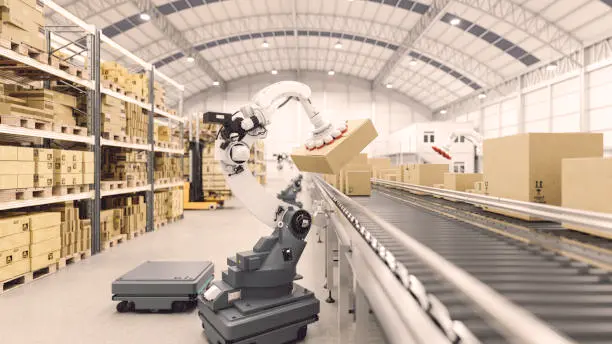
The Impact of E-commerce on Traditional Retail
- Admin
The rise of e-commerce has transformed the retail landscape, challenging traditional brick-and-mortar stores and reshaping consumer shopping habits. This article delves into the impact of e-commerce on traditional retail, examining the advantages, challenges, and future outlook for both sectors.
E-commerce, driven by technological advancements and changing consumer preferences, offers unparalleled convenience and accessibility to shoppers. With the click of a button, consumers can browse a vast array of products, compare prices, and make purchases from the comfort of their homes or on the go. This convenience has fueled the rapid growth of e-commerce platforms, leading to increased competition and market saturation in the online retail space.
One of the key advantages of e-commerce is its ability to reach a global audience and expand market reach beyond geographical boundaries. Unlike traditional retail stores limited by physical locations, e-commerce platforms can cater to customers worldwide, breaking down barriers to entry and enabling small businesses to compete on a level playing field with established retailers.
Moreover, e-commerce offers personalized shopping experiences through data-driven recommendations and targeted marketing strategies. By analyzing customer behavior, preferences, and purchase history, e-commerce platforms can tailor product recommendations, promotions, and offers to individual shoppers, enhancing customer satisfaction and driving repeat purchases.
Furthermore, e-commerce provides cost efficiencies and flexibility for businesses by eliminating the need for physical storefronts and reducing overhead costs associated with rent, utilities, and staffing. This cost-saving advantage allows e-commerce businesses to offer competitive prices, promotions, and discounts to customers while maintaining healthy profit margins.
However, the rise of e-commerce also poses challenges for traditional retail stores, particularly brick-and-mortar establishments. As consumers increasingly turn to online shopping, foot traffic and sales at physical stores may decline, leading to store closures, layoffs, and economic hardship for traditional retailers. Moreover, traditional retailers face challenges in adapting to the digital age, including investing in e-commerce infrastructure, logistics, and digital marketing capabilities to remain competitive in the online marketplace.
Despite these challenges, there are opportunities for traditional retailers to thrive in the e-commerce era by embracing omnichannel strategies that blend the physical and digital shopping experiences. By integrating online and offline channels, traditional retailers can offer customers the flexibility to shop however they prefer, whether in-store, online, or via mobile devices, creating seamless and personalized shopping journeys that drive engagement and loyalty.
Looking ahead, the future of retail is likely to be shaped by the convergence of e-commerce and traditional retail, with omnichannel strategies becoming increasingly prevalent. By leveraging the strengths of both online and offline channels, retailers can create unique and differentiated shopping experiences that meet the evolving needs and preferences of today's consumers.
In conclusion, e-commerce has had a profound impact on traditional retail, offering convenience, global reach, and personalized experiences to shoppers while presenting challenges for brick-and-mortar stores. By embracing omnichannel strategies and leveraging the strengths of both online and offline channels, retailers can adapt to the changing retail landscape and thrive in the e-commerce era.
Ryodo Automation understands the challenges and opportunities of e-commerce in retail and offers a range of solutions to support retailers in their digital transformation journey. From e-commerce platform integration and digital marketing services to omnichannel analytics and customer engagement tools, Ryodo Automation empowers retailers to navigate the e-commerce landscape effectively and drive business growth in the digital age.
